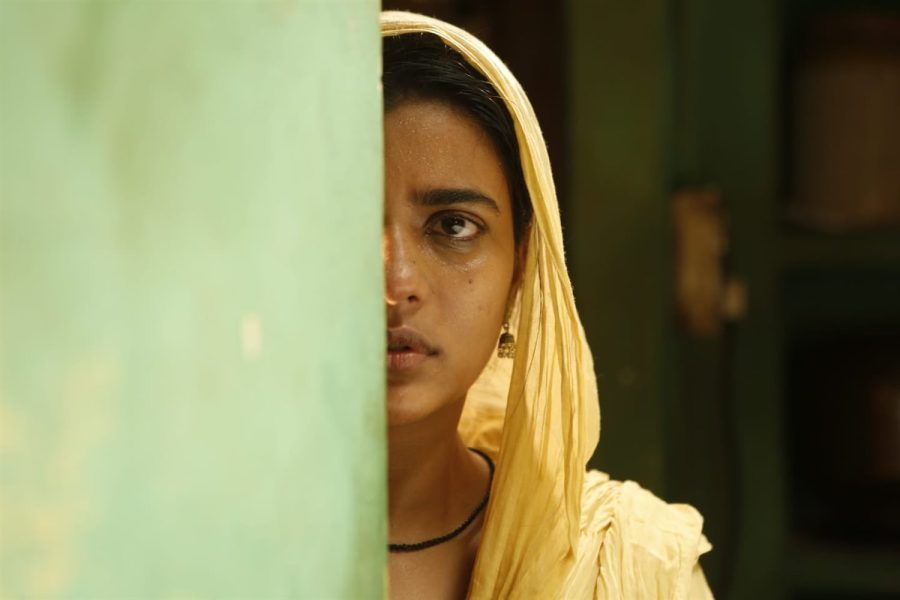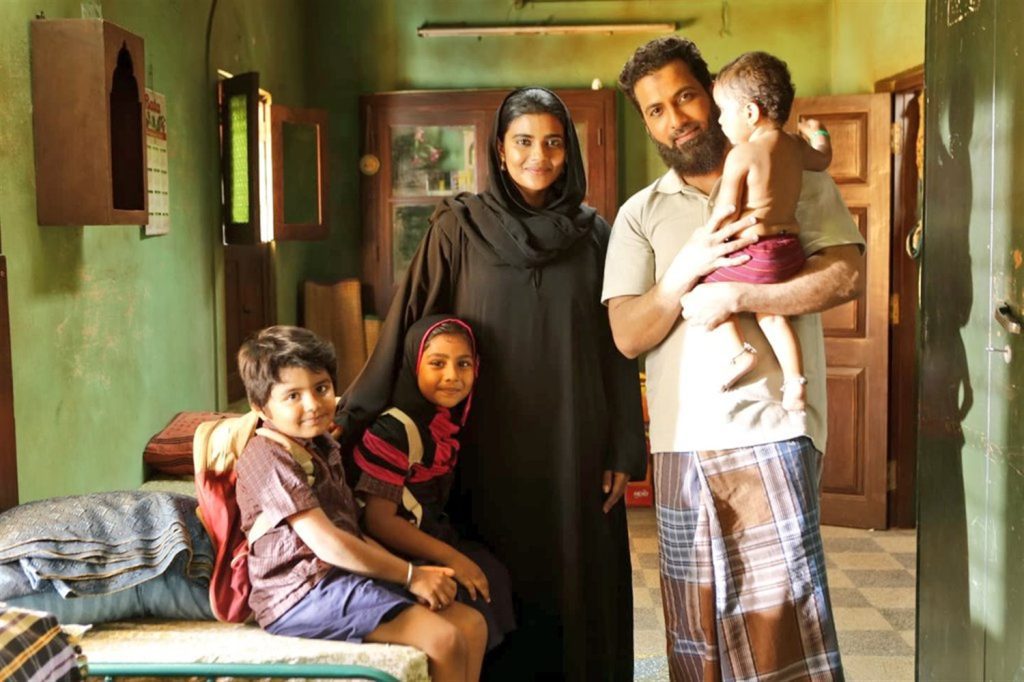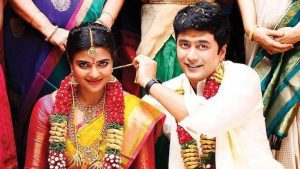
Aishwarya Rajesh interview: 'Farhana helped me push my limits as a performer'

Rarely has Aishwarya Rajesh got negative reviews for a bad performance or for essaying a role that has little impact on the script. This is despite being someone who began acting very early on in life and who learnt how to choose scripts on her own.
If ‘Kaaka Muttai’ and ‘Ka Pae Ranasingam’ are the two films often pinpointed to showcase her talent, the time is ripe to add Nelson Venkatesan’s ‘Farhana’ to the list. As a young woman married off at an early age to a man (a lovely Jithan Ramesh), who is kind but not exceptional and a mother to three kids, one of whom is unwell, Aishwarya is fabulous, investing Farhana with a certain innocence.
And then, when she discovers companionship over the phone and learns to live her life, you see her growing confidence in her gait. Aishwarya’s eyes do most of the talking — be it the initial shock of her new job, the initial guilt or the first smile, she’s spot on in a role Nelson has written with such love and care.
In a conversation with The Federal, the feisty actor, Aishwarya speaks about working hard to find her space in the industry, her effort to hold on to it, her eclectic range of films this year, and more.
Edited excerpts:
How did you react as an actor when ‘Farhana’ was first narrated to you?
Nelson narrated the script to me four years ago and I found it very interesting. There were plans to make it as a series. This was the period before the series became a big thing — it was a pre-COVID world. And then, sometime later, he said he’d found backing and that we could make this a movie. I was very excited because ‘Farhana’ is a very challenging role for any actor — she has so many layers. I felt great it was offered to me. It is very empowering when you get scripts like this.
Also read:Venkat Prabhu on ‘Custody’: ‘Naga Chaitanya dislikes larger-than-life heroes’

Every woman, married or unmarried, holds within her some kind of suppression and this film showcases that side of a woman who feels very comfortable interacting with a voice on the phone. She feels something for someone who gives her an ear. Farhana is married and constantly working to get her family out of poverty and to help her unwell child, and in that, there’s this unseen ‘voice’ that sees her.
I particularly loved the line where she tells her husband what happened and explains that as a couple they only spoke about their problems, and never had a conversation. And that she got comfortable in a conversation with a stranger.
How many men are able to give time to their women after marriage? Somewhere, they are taken for granted and that magic gets lost. Farhana is put in a position of danger because of her family situation but then finally what rescues her is also her family.

This year has been interesting for you because you had so many releases — ‘Driver Jamuna’, ‘The Great Indian Kitchen’ (remade from Malayalam in Tamil), ‘Soppana Sundari’, and now this.
It is also some form of validation, I think. It is difficult to choose female-centric films, even as you are making your place in the industry. I really liked the scripts of these films. I’ve always made conscious choices — a film should entertain families, be socially responsible, offer me some scope for performance…
Luckily, family audiences are my biggest strength, but that also makes me conscious of the fact that I should not let them down. I’ve struggled to find a place and now that I have it, I should keep it, however difficult the process.
I worship cinema and respect my profession a lot. And so, I have to make sure I give back to cinema and entertain the audience.
Also read: Aishwarya Rajesh wants top billing in films; new cop drama lands on July 30
How did you prep for Farhana?
I learned how to pray from some Muslim women. For about two weeks, they taught me everything, including mindfully washing oneself before praying. By nature, I am not a very prepared actor. I go to the sets like a blank paper. The director gives me inputs and then I start writing on paper. Nelson’s suggestions helped in a big way. I have played a mother of two in ‘Kaaka Muttai’ but she was brisker, more active. I consciously slowed down for ‘Farhana’, walked less fast, and spoke softly. She’s a direct contrast to what I am as a person.
How long did it take you to slip into the role?
It took me a week. The first scene was the one on the phone and I took 50 takes. I was not able to understand Farhana. Nelson and I had not worked with each other before and we did not have a working relationship. Then, we sat and spoke. I asked him what he expected of me. We exchanged inputs. He wanted Farhana to never see anyone in the eye. I convinced him I would not be able to do that. I had to maintain the pace for the entire film. Even for dubbing, I took about 20 days, because I could not increase or decrease one note. I had to whisper in a husky tone because, in a call centre, even the person in the next chair must not hear you.
And along this journey, Farhana becomes playful, and Nelson wanted me to show that in my eyes. My body was contained, but my eyes had to speak. It was very interesting. The hardest part was the scene at home when she almost got caught. There are a hundred things running in her head, like a tsunami. It was great for me as an actor to go through this process. We also had many single shots. It helped me push my limits as a performer because Farhana does sometimes slip into the grey zone.
Has the method you use to choose scripts changed?
Not at all. I listen to a lot of scripts and pick the one or two that I like. It is difficult but I am trying my best to choose scripts that are unique. But, yes, I wish female characters in commercial films were written better. The women in hero-centric vehicles need not be weakly written. I liked the feedback to my films this year. I think people liked realistic writing.
Over the years, you’ve not really changed as a person. Popularity has not really changed you. How do you manage this?
I am not trying to be real; I am just being myself. It helps that I am surrounded by people and creators who like me for who I am. I can do all it takes to keep a character real. You saw ‘Kaaka Muttai’. You’ve seen ‘Farhana’.
It is important to bring alive the director’s vision. In fact, Arun, the director of ‘Pannaiyaarum Padminiyum’, told me that he loved that I had not pedicured my feet for the close-ups. The women I spoke to said they would not use nail polish on their feet. I think those things matter. Everyone need not spot them, but it feels good when the little things you do are noticed.


